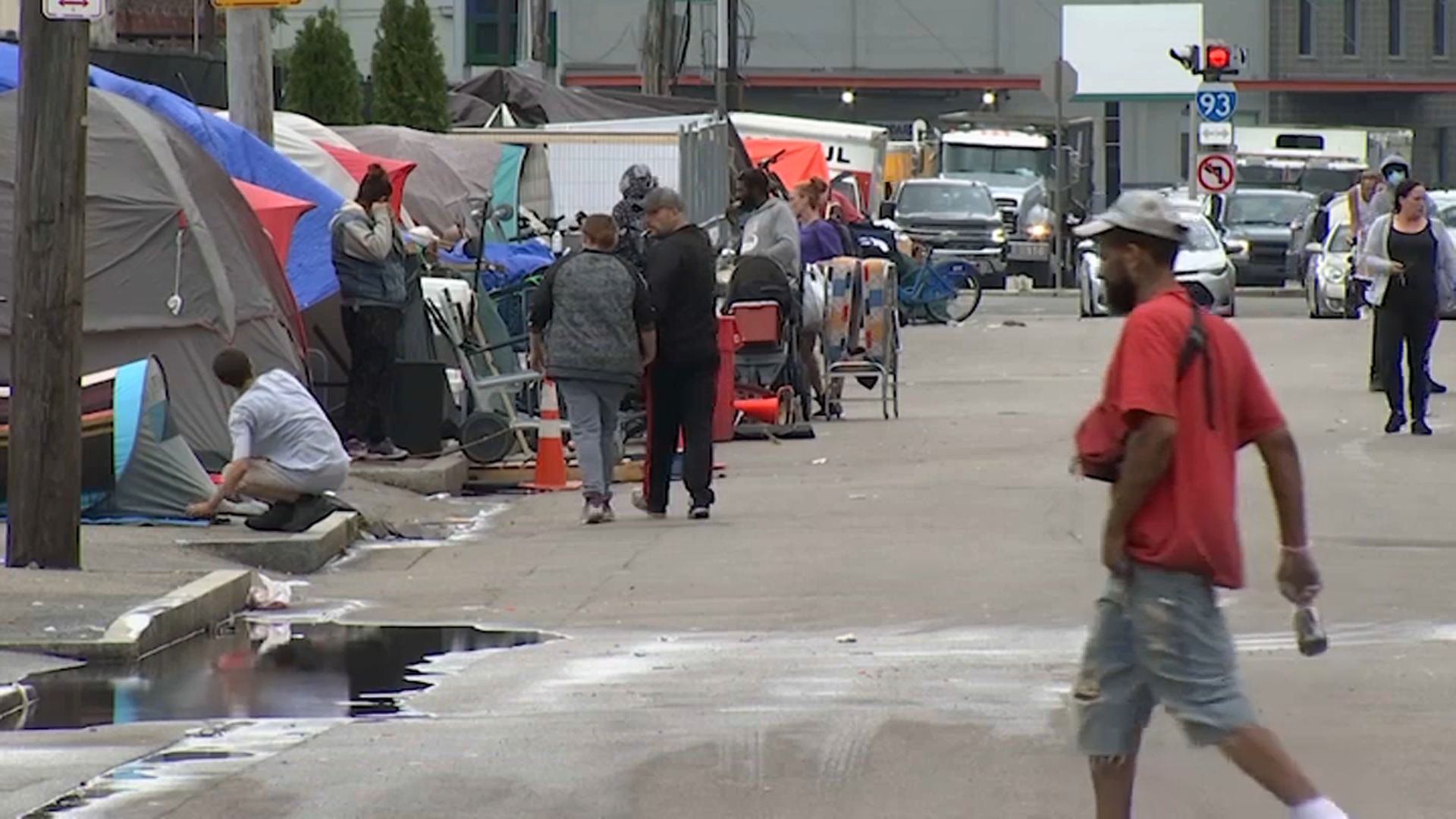City officials have not yet revealed a specific deadline for when tents need to come down. Anyone who doesn’t comply could face a charge of disorderly conduct.
Health officials said they would begin cleaning and removing tents along Massachusetts Avenue and Melnea Cass Boulevard Monday morning in an attempt to address addiction and homelessness in the area.
The long troubled part of the city, known as Mass. and Cass, Methadone Mile and Recovery Road, sits between Roxbury and the South End. The area is inundated with people struggling with addiction and it has also become a haven for various crimes.
Stream NBC10 Boston news for free, 24/7, wherever you are.
Boston Mayor Kim Janey last week declared the rampant drug use and homelessness in the area a public health crises and vowed to remove the tents scattered along the sidewalks near the intersection.
At least one flier posted in the area notified residents of a cleanup starting at 7 a.m., citing “health, environmental and sanitary concerns," but the process didn't unfold very quickly Monday.
Get updates on what's happening in Boston to your inbox with our News Headlines newsletter.
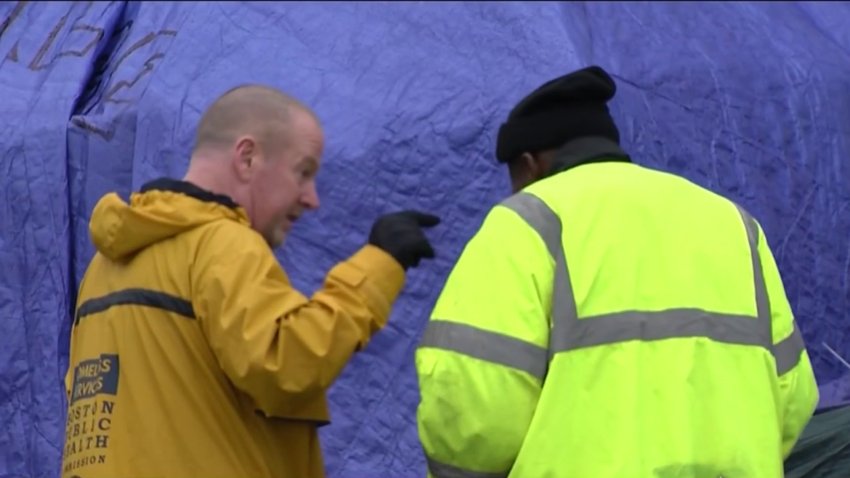
Workers from the Boston Health Commission spoke with people about housing alternatives and other resources on Monday, but no one or their personal belongings were seen being forcibly removed.
A city spokesperson said in a statement that workers were "providing unsheltered people with options for shelter and services," and that clean-ups were being conducted where building maintenance had been scheduled.
"No person will be asked to move their tent as part of this effort without first being offered shelter," they added.
On Sunday, the city wouldn’t comment on a timeline for the cleanup, but said it would begin as soon as possible. It also reiterated that it wouldn’t force anyone out of a tent unless it found another place for them.
“Tents are not appropriate for housing. They lack clean water and adequate hygiene facilities,” Janey said during a news conference Tuesday. "These tents have become the site of infectious diseases, sexual assaults, human trafficking, potential overdoes and violence.”
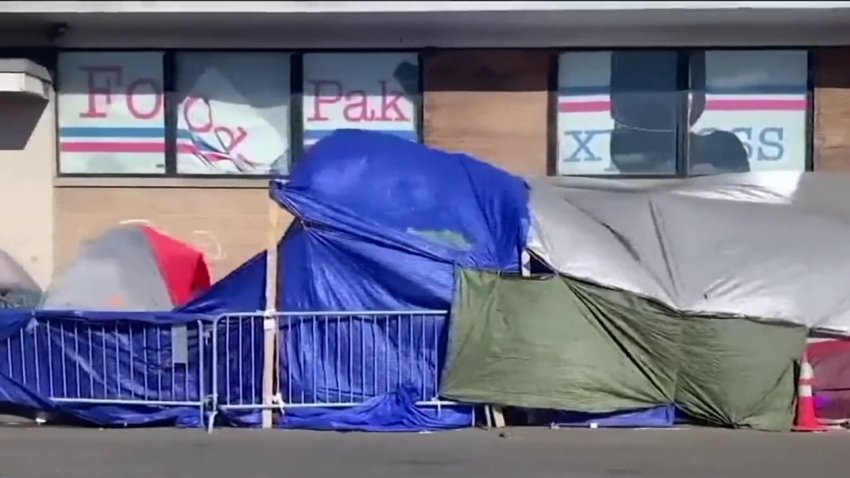
Ronald Geddes, a man from Dorchester who's living at Mass. and Cass, said he understands the city's concerns but won't live in a shelter because they're too dangerous and he can't pay rent after losing his job during the pandemic.
"I can't afford what they're asking and I'm looking for a decent job where I can make it affordable. It's just too much money right now. That's what it comes down to for me," he said Monday.
“I’m very nervous and scared,” said Odair Rosa, who lives among the homeless residents along Southampton Street.
“They’re getting us used to being here and they’re trying to kick us out now,” said Rosa. “We don't know what to do, because we’re pretty much like sick people.”
Despite the uncertainty, the 33-year-old says he’s considering entering treatment for his drug addiction.
“I’m trying to go to a program,” he said. “I miss my family, I miss my kids.”
He says this might be the push he needs to turn his life around.
“For me it’s a good thing because if I don’t have this then then I’m not gonna be here and I’m not going to use,” he said.
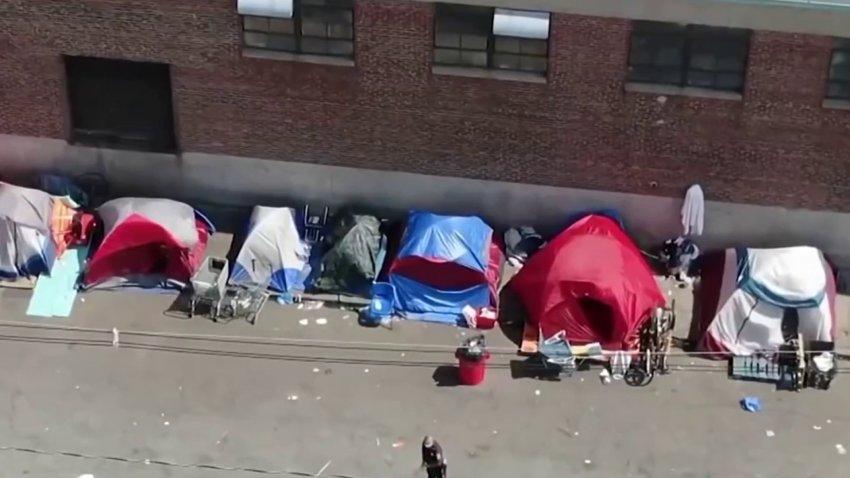
Linda Sprague Martinez is an associate professor at the Boston University School of Social Work.
“I don’t think we can make an assumption that ‘I know what’s best for you, I think you need to stop using drugs right away’,” she said. “I think people need to hear their options.”
Martinez is an expert in social welfare policy.
“We don’t need to say, ‘rush, rush, rush, everyone out’,” said Martinez. “That’s not going to solve the problem because what will happen is that there’ll be a new tent tomorrow, or it’ll pop up somewhere else.”
Domingos DaRosa, a community activist who has warned about the problems in the area in the past, said that removing the homeless encampments in the coming days is a bad idea.
“That’s inhumane. The fact is folks have nowhere to go,” he said. “The weather this week going to be dropping to the 50s, and we’re going to have rain.”
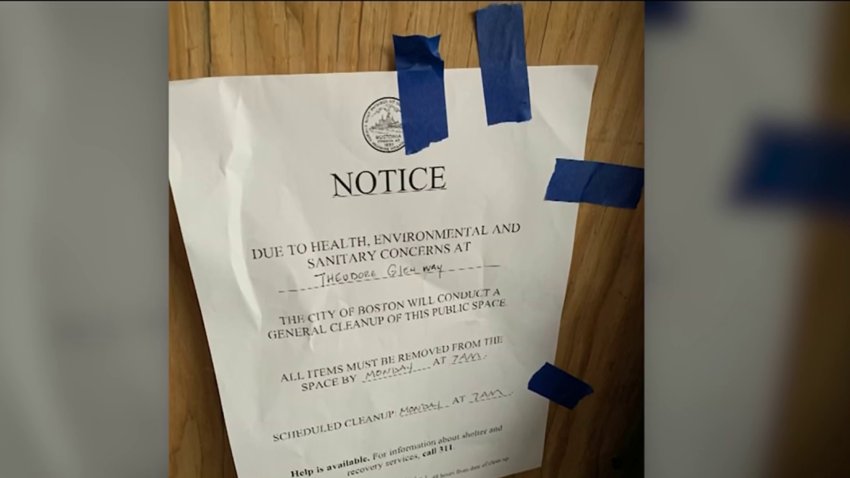
Our weather team issued a First Alert Monday for damaging wind, potential flooding and power outages as two nor'easters head for the region. Several towns and some cities will likely lose power in the coming days with gusts as high as 50 mph.
DaRosa also runs the Boston Bengals Pop Warner program, which packed up and left Clifford Park in Roxbury in September after children were nearly jabbed by dirty needles scattered across the field.
He said while he supports removing the tents at some point, doing so in the coming days could create even worse problems and threaten public safety.
“It’s going to flare out into the other sections of the community,” he said. “So, we as a community, we’re concerned that folks are going to find refuge under our porches, in our cars….”


